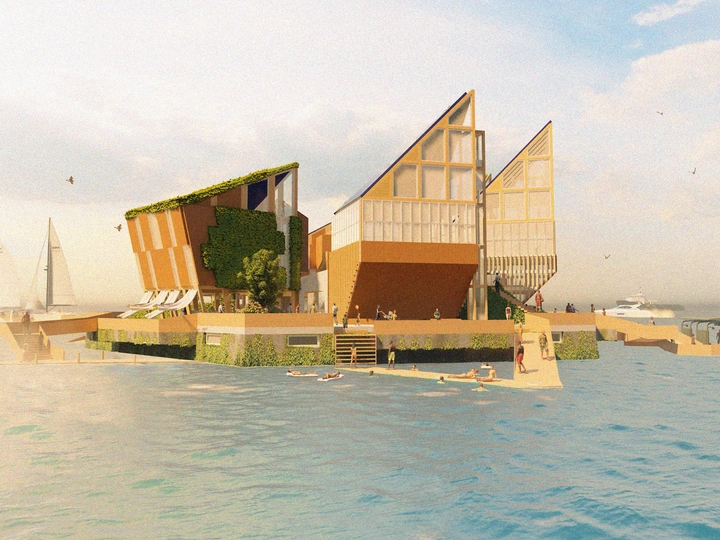SEAscapes

Enrico Giglio
Giuliana Mattiazzo
Alice Rosiello
Sergej Antonello Sirigu
Diego Bonilla began his university studies in Bogota, exploring diverse subjects within the bachelor programs of Architecture and Visual Arts. He then moved to Italy to complete his studies in architecture and urbanism at Politecnico di Torino, where he earned a Master's degree in Sustainable Projects. Currently, he serves as Lead Architect in the MOREnergy Lab at Politecnico di Torino, a role he has held since 2021, conducting research activities under the title of "Design of scenarios for floating cities." He complements with design skills this multidisciplinary team with over 15 years of experience in the marine energy field. He also advises master thesis students on the topic of floating solutions as a resilient response to climate change challenges.
Additionally, he is the design manager and co-founder of SEAform, an Italian start-up dedicated to developing innovative technologies for sustainable floating land. His responsibilities include: designing architectural and urban proposals for modular buoyant platforms adaptable to various contexts and scalable to diverse spatial requirements, overseeing the planning and production of visual content and managing the company’s online presence.
Diego has contributed to publications such as "Non-performing Cultural Heritage Reactivation" by FULL Lab in 2020 and "Hybrid Factory, Hybrid City" by Nina Rappaport in 2023, which includes segments of his master thesis. In 2023, he participated as a team member in a public competition proposing an urban revitalization project for Vignola, securing the 5th position. Beyond his professional focus on architectural design and research, his interests also extend to artistic practices. In 2016, he participated in a university photographic exhibition at the Old Mutual Cultural Center Gallery in Bogota.
His passion lies in continuous learning, exploring diverse mediums to study space, and discovering innovative methods of disseminating and communicating insights.
This project focuses on fostering reflection on future scenarios of waterborne living enabled by floating technologies. For the past three years, I have immersed myself in the study of floating structures, delving into both university research and business realms, envisioning them not merely as engineering feats, but as canvases for urban innovation. This journey has provided me with a technical perspective while also sparking various speculative inquiries.
My aspiration is to engage more people in the discourse surrounding floating cities, aiming not only to address pressing concerns like rising sea levels and land scarcity in delta cities but also to ignite collective imagination. It is crucial that we acknowledge the burgeoning reality of the ‘seasteading’ movement, as decision-makers push forward at high speed. We need critical minds involved in this dialogue, as it impacts us all, directly or indirectly.
In other words: just as the creation of images, whether bi- or tridimensional, has shaped not only the collective perception of urban realities but has also been a tool for the creation of 'LANDscapes' themselves, this project seeks to speculate about the emerging 'SEAscapes' of the near future.